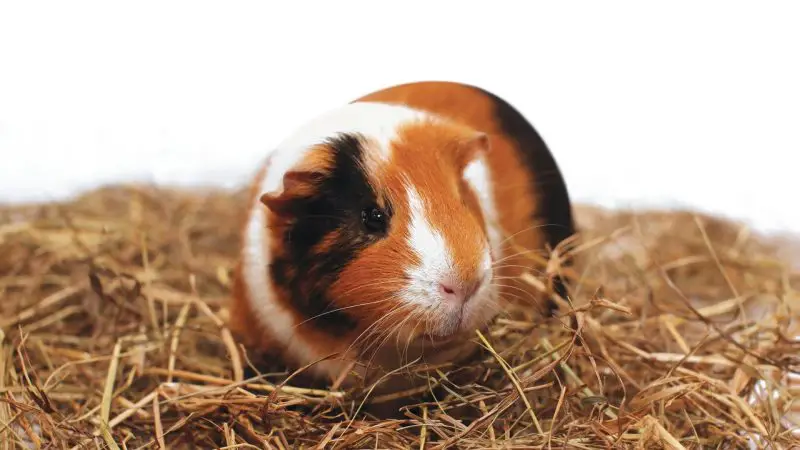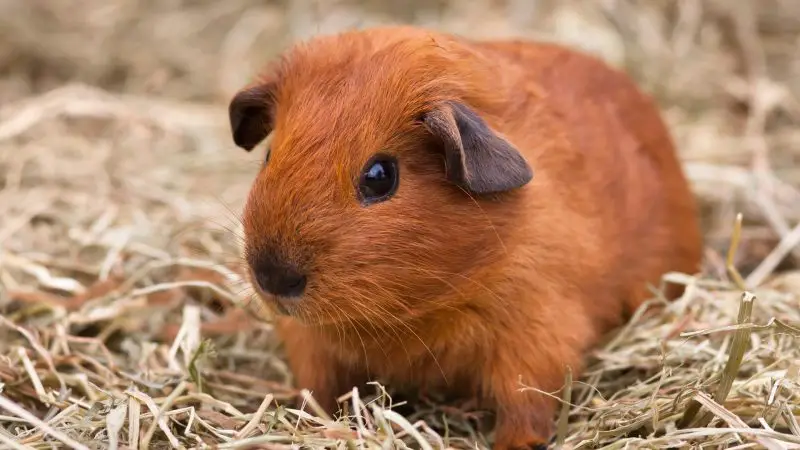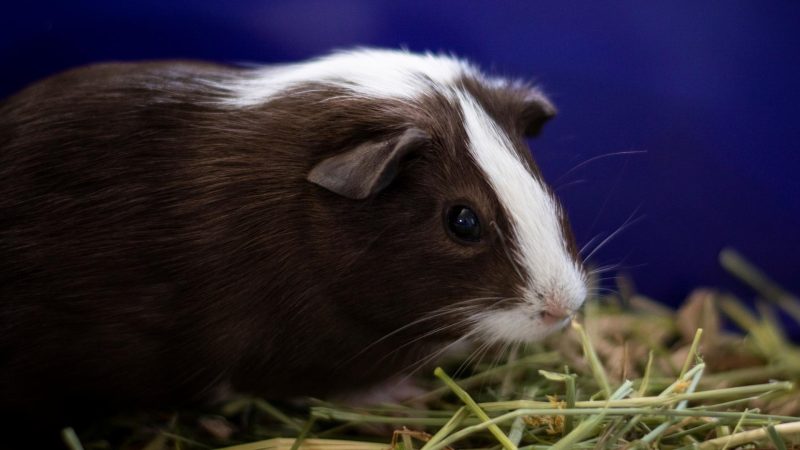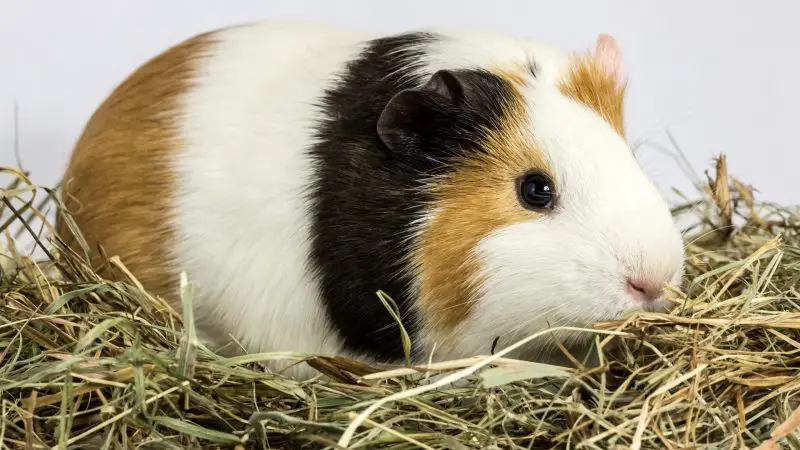Alfalfa hay is an important forage crop that is widely cultivated in several parts of the world. Aside from the fact that they are edible, they can also be used to produce green manure and can be used as cover crops in farms.
Additionally, it is a legume that is highly rich in protein, chlorophyll, carotene, calcium, and other minerals.
Can guinea pigs eat alfalfa hay? Guinea pigs can eat alfalfa hay but they cannot be fed to guinea pigs on a regular basis. It is a good source of calcium, vitamins, minerals, and protein. However, they contain too many nutrients which can affect the health of your cavy and cause obesity in them.
Now that you’ve got an answer to your question, you’re undoubtedly wondering about the following: What are the advantages of alfalfa for your pig? What vitamins and minerals does alfalfa contain?
What are the risks of giving alfalfa to your guinea pig? Don’t worry, we’ll provide you with detailed answers to these questions.
Table of Content
Is Alfalfa Hay Good for Guinea Pigs? | Health Benefits

Alfalfa hay is usually fed to feed rabbits and horses because of its heavy calcium content. They need it in great volume for their body system to work properly. But for your guinea pig, this is entirely different.
It can have a negative effect on their system if they are being fed heavily with this powerful grass on a daily basis.
Scientists also confirmed that alfalfa is really good for pregnant or nursing guinea pigs, and also baby piggies who need more calcium in their diet.
Alfalfa has many benefits when fed to your piggy. It can regulate the digestive system of your cavy by making it easier for them to process food. If fed with alfalfa in small amounts, your guinea pig may become immune to stomach problems, such as diarrhea.
Alfalfa hay can be added as a supplement to their daily diet. It also increases the bodily reserves of the pregnant piggy and makes breastfeeding easier. It also prevents malnutrition issues in their growing youngster.
Unlike humans who stop growing teeth at a particular age, guinea pigs continue to grow teeth. When their teeth are too large, it becomes difficult and painful for them to eat. Alfalfa, just like every other hay, is abrasive. It can help with maintaining the length of their teeth and regulating them.
In addition to these benefits, alfalfa can also be used for your cavy as bedding material. Guinea pigs like to have something soft and comfortable to lie on. So, it would be good if you can provide this for them.
Nutrition Facts of Alfalfa Hay

Alfalfa is very rich in chlorophyll, carotene, calcium, and other minerals. Also, it is a good source of vitamin B, C, D, D2, D3, E, and K.
For guinea pigs, alfalfa hays may be too powerful. Horses are the only animals that need alfalfa hays the most. They are more agile and active animals than guinea pigs, so they need more of the protein and calcium contents from the hay.
Alfalfa hays include about 18.0% crude protein, 1.3% crude fat, and 30.0% fibers, which is a high level of fiber for guinea pigs.
The most important hay for guinea pigs is timothy hay. This is good for their overall diet and health. Feed the pigs alfalfa hay only when they need it.
Give your pigs their appropriate hay ration with vegetables at the right time. Your pets are the reflection of whatever you feed them and how you take care of them.
Is Alfalfa Hay Bad for Guinea Pigs? | Possible Risks

Alfalfa hay is highly rich in proteins and calcium. The high intake of protein in guinea pigs can lead to obesity. Also, the high intake of calcium may lead to urolith.
It is a bladder stone formation in guinea pigs, causing them urinary tract issues and digestive problems. Alfalfa hay can be very dangerous for your guinea pigs when fed in excess or when given in an inappropriate ration.
Do not overfeed your guinea pigs with alfalfa hay just because you want them to have the energy or to be strong. Guinea pigs do not need too much calcium in their body.
Just like rabbits, they absorb calcium efficiently and also excrete excess when they urinate.
Because of this, their metabolic system is unique. So, make sure you do not get carried away by feeding them this hay on a regular basis.
Quick Facts on Alfalfa Hay and Guinea Pigs

- Alfalfa hays are made from the alfalfa plant which is also called lucerne. This is a name most commonly used in New Zealand, South Africa, and the UK, with the botanical name medicago sativa.
- Alfalfa is a perennial plant, categorized under the legume family, fabaceae.
- The alfalfa plant can also be used for grazing, silage, green manure, and cover crop.
- Alfalfa is said to be of South-Central Asia origin and it was initially cultivated in ancient Iran.
- Alfalfa can be cultivated either in spring or later in the fall especially in dense areas.
- It is a forage legume that has a normal lifespan of four to eight years.
- Out of all the common hay crops, like grass and timothy, alfalfa is said to usually have the highest nutritional value.
- A quick fun fact is that humans also eat alfalfa sprouts in salads and sandwiches. It is also an edible plant for the human race.
We have also made a full list of foods that guinea pigs can and can’t eat (150+ Types of Foods). Be sure to also check our recommended products page for everything you will ever need to assure a happy life for your guinea pigs. Hope this information was helpful and you have found the answer you were looking for.
List of Sources
Vitamin C Requirements of the Guinea-Pig
